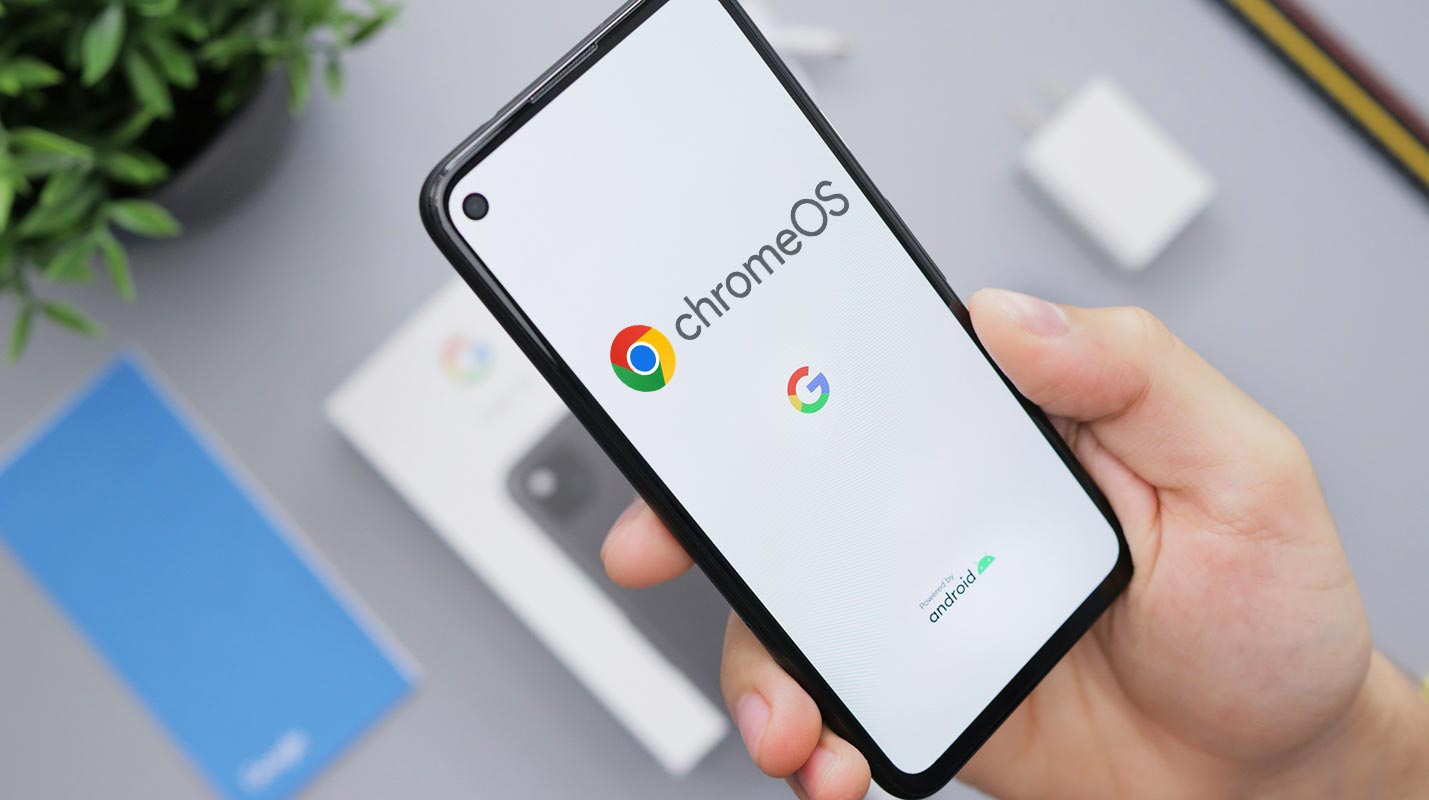At its annual developer conference, I/O, Google will unveil many software enhancements and AI innovations. Among the anticipated reveals is a glimpse of the new Pixel 8a, but what truly piques interest is the ongoing development of Android 15 and the potential integration of Chrome OS into Android via Fuchsia OS. This convergence hints at a future where mobile devices could achieve PC-like functionality, combining the best operating systems.

Background of Chrome OS and Android
Chrome OS and Android have evolved significantly over the years. Initially designed for lightweight laptops, Chrome OS has grown to support various applications, including Android apps. Android, known for its versatility and widespread adoption, powers billions of devices worldwide, from smartphones to tablets.
Initial Attempts at Integration
Google’s initial attempts to integrate Chrome OS and Android, such as the Andromeda project, faced numerous challenges and ultimately failed to come to fruition. These early efforts highlighted the complexities involved in merging two distinct operating systems.
Introduction to Fuchsia OS
Fuchsia OS is Google’s ambitious project to create a versatile and secure operating system. Unlike Chrome OS and Android, which are based on the Linux kernel, Fuchsia uses the Zircon kernel. This microkernel architecture provides enhanced security and performance, making it a unique contender in the OS landscape.
Fuchsia OS’s Unique Kernel
At the heart of Fuchsia OS, the Zircon kernel is designed for minimalism and security. Microkernels, like Zircon, run essential system services in isolated user spaces, reducing the risk of system-wide vulnerabilities. This architecture promises a more robust and secure platform than traditional monolithic kernels.
Current Use of Fuchsia OS
Fuchsia OS is primarily found in smart home devices like Nest Hub. These deployments showcase its capabilities in managing connected devices and providing a seamless user experience.
Microfuchsia: Fuchsia on Android

Microfuchsia is a scaled-down version of Fuchsia OS designed to run within virtual machines on Android devices. This initiative, which began in April 2024, indicates Google’s interest in leveraging Fuchsia’s security features within the Android ecosystem. Virtual machines provide a secure, isolated environment for micro Fuchsia, ensuring it does not interfere with the primary Android system.
Role of Android Virtualization Framework (AVF)
The Android Virtualization Framework (AVF) is a critical component in this integration. Introduced in Android 13, AVF allows entire operating systems to run as virtual machines within Android. Officially, AVF supports running a minimized version of Android called Microdroid, but it also extends to support Chromium OS, Chrome OS’s open-source counterpart.
Chromium OS and Ferrochrome
Chromium OS serves as the foundation for Chrome OS. Google has developed a unique build called Ferrochrome, currently tested on secondary displays connected to Pixel devices. This proof-of-concept demonstrates the feasibility of running Chrome OS-like environments on Android hardware.
Proof-of-Concept Demonstrations
Recent demonstrations of Ferrochrome running on a secondary display attached to a Pixel device underscore Google’s progress. While these are early experiments, they showcase the potential for a fully integrated Chrome OS experience on Android devices.
Potential Benefits of Integration
The integration of Chrome OS and Android promises several benefits. Users could enjoy enhanced productivity features, such as improved multitasking and seamless switching between mobile and desktop modes. This convergence could provide a more unified and efficient user experience, similar to Samsung’s DeX mode.
Challenges and Considerations
Despite the promising prospects, significant challenges remain. Technical hurdles include ensuring compatibility and performance across different hardware configurations. Additionally, practical use cases must be developed to demonstrate the value of such integration to end-users.
Future Prospects
As Android 15 progresses, more details about this integration will emerge. While a fully functional deployment might still be years away, the groundwork laid by current developments suggests a promising future for Chrome OS and Android convergence.
FAQs
What is Fuchsia OS?
It is a new operating system developed by Google that features the Zircon microkernel for enhanced security and performance.
How does Fuchsia OS differ from Android?
Fuchsia OS uses the Zircon kernel, whereas Android uses the Linux kernel. This difference in architecture provides Fuchsia with unique security and performance benefits.
What is the Android Virtualization Framework (AVF)?
The Android Virtualization Framework (AVF) allows entire operating systems to run as virtual machines within Android, enabling new functionalities and integrations.
Will Chrome OS replace Android?
No, Chrome OS is not expected to replace Android. Instead, the integration aims to combine the strengths of both operating systems for a more versatile user experience.
When can we expect to see this integration in consumer devices?
While the integration is still in the experimental stages, it might be a few years before we see a fully functional deployment in consumer devices.
Wrap Up
The potential integration of Chrome OS into Android via Fuchsia OS marks an exciting development in the tech world. By leveraging the strengths of each operating system and overcoming technical challenges, Google aims to create a more versatile and powerful user experience. This ambitious move promises to blend Chrome OS’s desktop-like capabilities with Android’s mobile convenience, offering users a seamless and unified interface.
As we look forward to future announcements and advancements, the dream of a unified, PC-like functionality on mobile devices inches closer to reality. Such integration could revolutionize how we interact with technology, making mobile devices as capable and efficient as traditional PCs while maintaining their portability and ease of use. This convergence signals a significant shift in the tech landscape, potentially redefining mobile and desktop computing boundaries.

Selva Ganesh is the Chief Editor of this Blog. He is a Computer Science Engineer, An experienced Android Developer, Professional Blogger with 8+ years in the field. He completed courses about Google News Initiative. He runs Android Infotech which offers Problem Solving Articles around the globe.



Leave a Reply